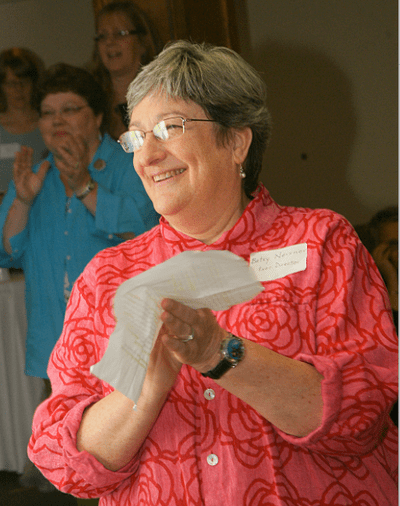Advertisement
Cancer Drug Shortage All Too Real For Some

By Karen Weintraub
Guest Contributor
Betsy Neisner of Northampton has survived a decade with ovarian cancer – half her daughter’s life and long enough that her 17-year-old son doesn’t remember her before she became a patient.
As if living under this sword of Damocles weren’t enough, Neisner is now faced with the shortage of the drug that has kept her cancer in check since last April. Doxil, which has worked well for her with minimal side effects, is being severely rationed after the single plant that manufactures it shut down late last year. She has one month’s supply left. After that, her choices get grim: switching to another medication with much rougher side effects, or doing without and risking a recurrence.
There’s a chance she’ll be able to get more Doxil – if the drug stops working for people with a few months supply left, or if they die before using up their allotment.
[module align="right" width="half" type="pull-quote"]Methotrexate is also the drug of biggest concern locally.[/module]
So, Neisner’s future quality of life is hostage to someone else’s misery.
Doxil is one of 250 drugs in extremely short supply in the US right now – many of them cancer drugs. The same shuttered plant – Ben Venue Laboratories in Bedford, OH – that left Doxil patients adrift also manufactured methotrexate, a drug also used to treat young children with an aggressive – but curable – form of blood cancer.
(Gardner Harris at the New York Times wrote a moving story about the shortage of methotrexate earlier this week.)
The plant is not expected to reopen until early next year at the earliest.
Methotrexate is also the drug of biggest concern locally, according to Dr. William Churchill, executive director of pharmacy at Brigham and Women’s Hospital.
“We do still have the medications and we are still treating patients, but our supply is beginning to reach critical levels,” he said this afternoon via a hospital spokeswoman. “We are working with our colleagues in the Longwood Medical Area to support each other until the shortages are resolved.”
Why do the lives of thousands of American women and preschoolers depend on one factory in a Cleveland exurb? The economics of niche cancer drugs are such that there’s not enough money to share among competitors.
The US Food and Drug Administration is looking for other suppliers of methotrexate, according to that New York Times story; Neisner doubts that such an alternative will be feasible for Doxil, which is manufactured on specialized equipment and can’t be quickly moved to another plant. Europe is having its own Doxil supply problem, she said, so the drug can’t simply be imported from elsewhere.
Neisner, executive director of Cancer Connection, a Northampton-based group that serves people living with cancer, testified about her concerns yesterday before the state’s Joint Committee on Public Health.
She said the only thing she can do now is get the word out about the shortages, hoping that a public outcry will force drug companies and government officials to take some action. People coping with the burden of cancer simply need that moral support from others, she said.
“When you know there is a drug that works and it’s simply not available, your sadness is tinged with anger.”
Readers, do you have a personal story to tell about cancer drug shortages? Please share it below.
Karen Weintraub is a freelance Health and Science journalist based in Cambridge.
This program aired on February 14, 2012. The audio for this program is not available.
